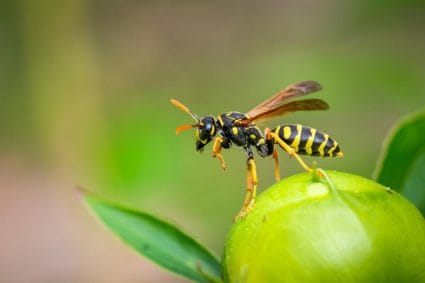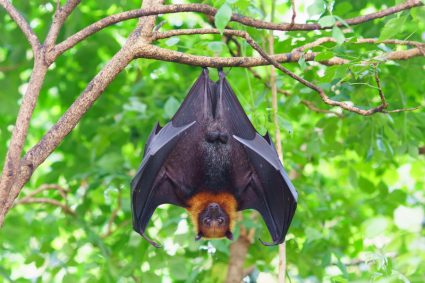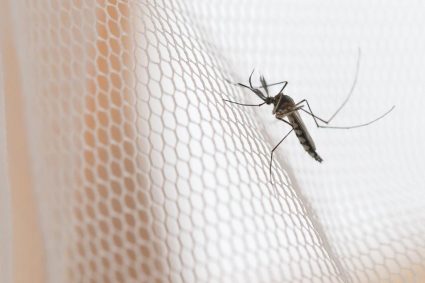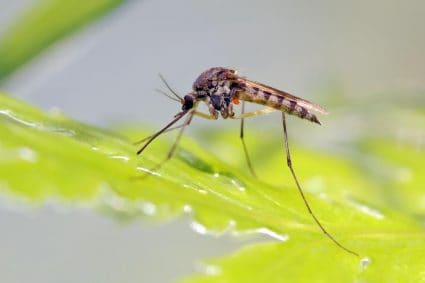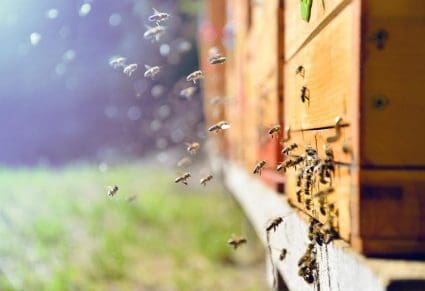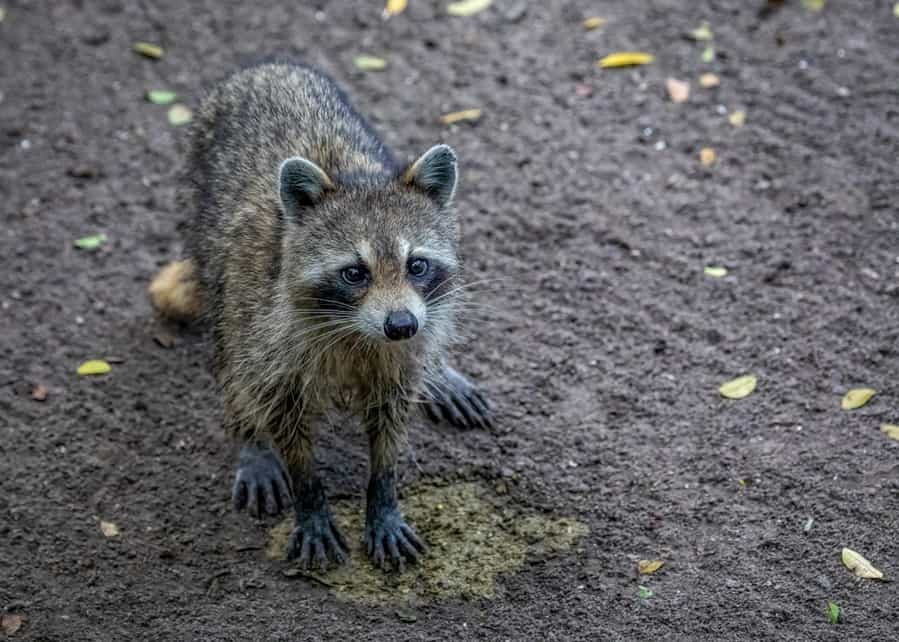
Raccoons are widespread mammals encountered in many places around the globe. They have a reputation for being cuddly and fuzzy despite their notorious nature.
They consume anything they can get their paws on, including human and animal waste and scraps. In search of food, raccoons are known to rummage through garbage cans and dumpsters.
Raccoons will dig up your yard or garden and leave piles of raccoon feces, which no one likes. Thus, several wish to know how to deter Racoons from pooping in the yard.
Rabies and other infections can be found in the feces of many raccoons. However, the feces of these adorable little critters can infect people with rabies and roundworm. Therefore it is important to follow a few tips given below.
- Keep your yard clean and dispose of any garbage pile that can attract raccoons.
- Maintain safety by keeping all the entry points closed or out of the raccoon’s reach.
- Keep spray deterrents accessible so you can eliminate them the moment they enter.
There are several other methods to deter raccoons from pooping in the yard.
No matter what you call it, raccoon waste is a big health risk and a major problem for hardscaping. Therefore in this article, we will discuss the various ways to prevent the raccoon from pooping in the yard.
11 Ways To Deter Raccoons From Your Yard
The best way to avoid dealing with raccoon droppings in your yard is to prevent raccoons from entering your yard in the first place! It is essential to use the most effective method to eliminate the conditions that encourage them to visit your yard.
Raccoons won’t bother opening a sealed trash can or even coming near the can if a rodent-repellent bag is inside.
If you or, even better, everyone in the area takes these precautions, the garbage will be unavailable to the raccoons, and they will move on.
1. Keep the Garbage Cans Locked Up
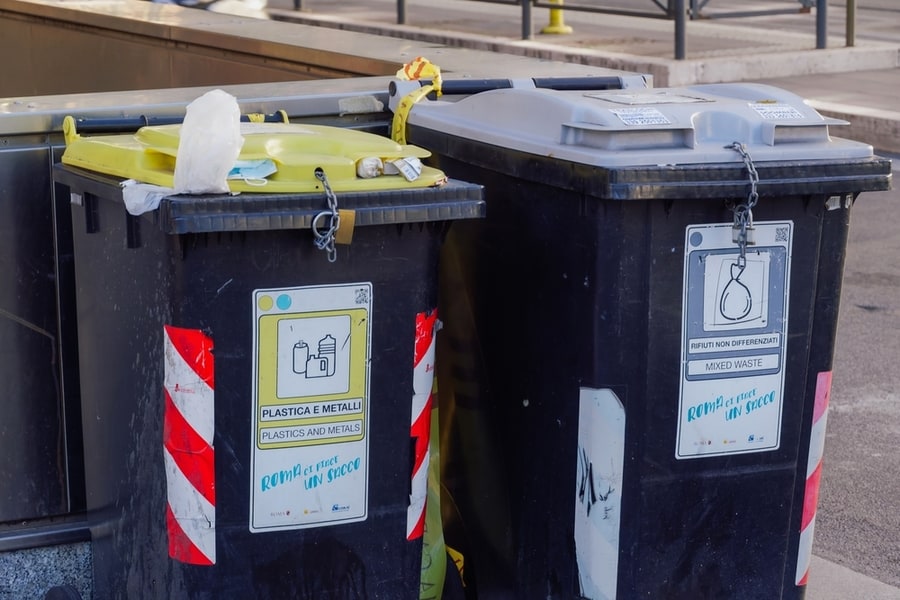
It is preferable to store your bins somewhere they will be safe from raccoons and other animals. For your garbage cans to be safe, you either need to lock them into place or use something substantial to keep the lids closed.
The raccoons won’t be able to rummage through the trash and make a mess. The objective is to eliminate the conditions that encourage their presence in your yard.
2. Trash Can Liners That Deter Rodents Should Be Used
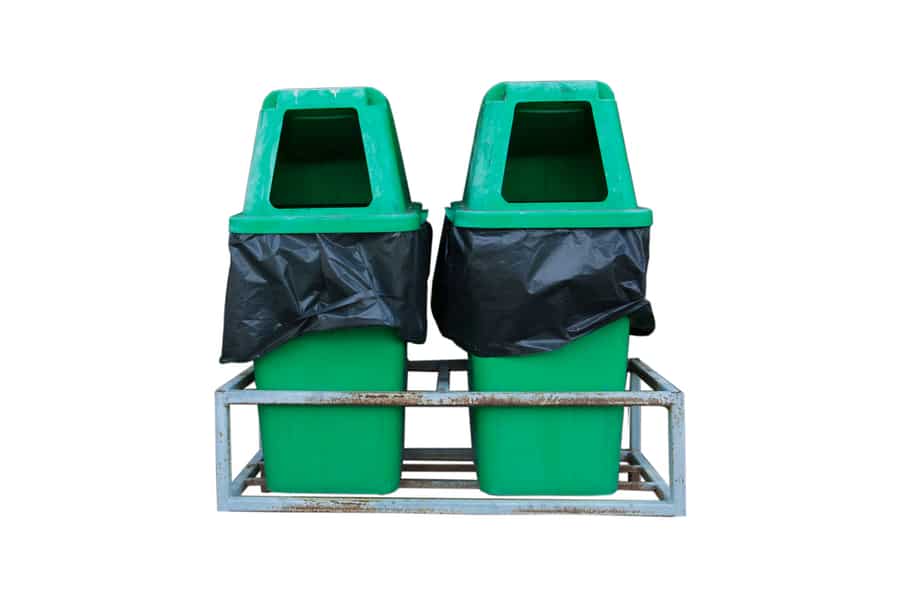
If you don’t trust utilizing large weights on your bins or don’t have a secure location to keep them out of the reach of raccoons, rodent-proof trash bags are your next best option.
Trash bags designed to deter rodents like raccoons emit a scent that is detectable through scent-detecting technology.
In the same way that other animals can detect prey from great distances, raccoons can do the same, thanks to their acute sense of smell.
Unfortunately, they are also highly sensitive to odors, and when they encounter anything they truly despise, they will run as far away from it as possible.
3. Garden Fencing Needs To Be Properly Installed
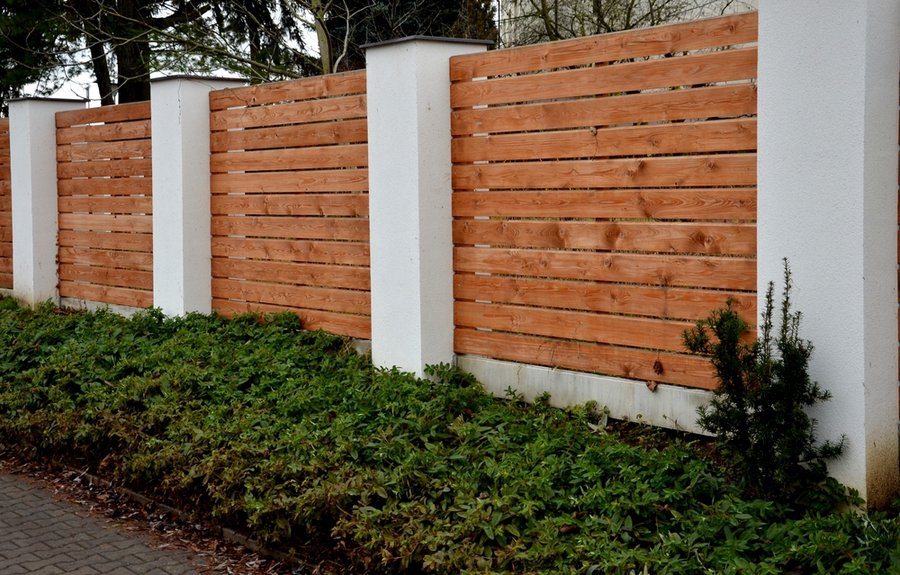
The most important thing you can do to protect your garden or yard from animals is to install sturdy fencing around it. You will need a large fence to keep out raccoons because they can jump roughly 10 feet.
Ask a professional gardener or fence installer for help. It’s safe to say this is the best and most reasonable option available.
4. Block Entry Points
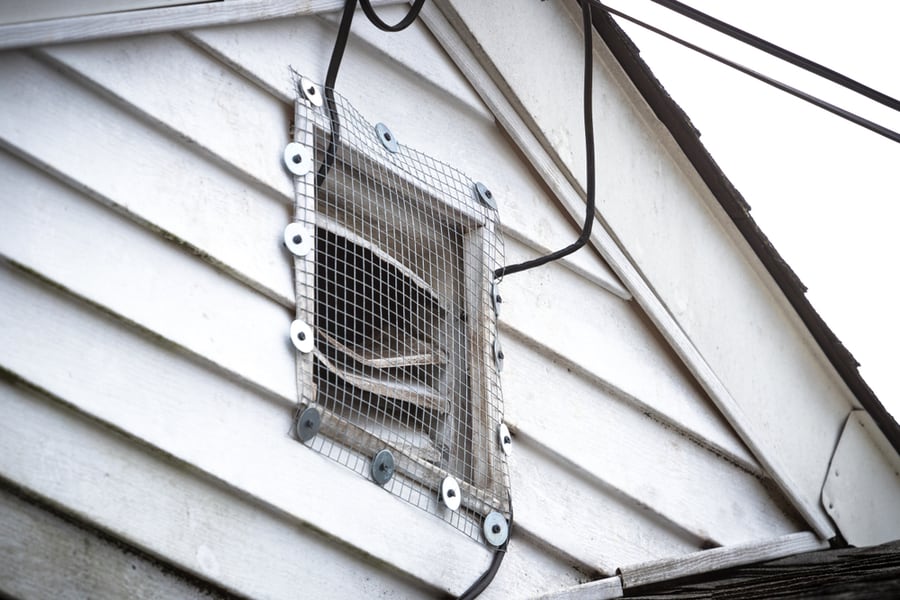
Raccoons are attracted to gardens that lack good fences and have many dark, concealed spaces to hide in. Block off any openings, including those in the eaves, under the porch, in the walls, or the chimney.
If raccoons can’t find a cozy spot in your yard, they won’t bother you for food or shelter.
5. Create a Garden That Wildlife Can’t Eat
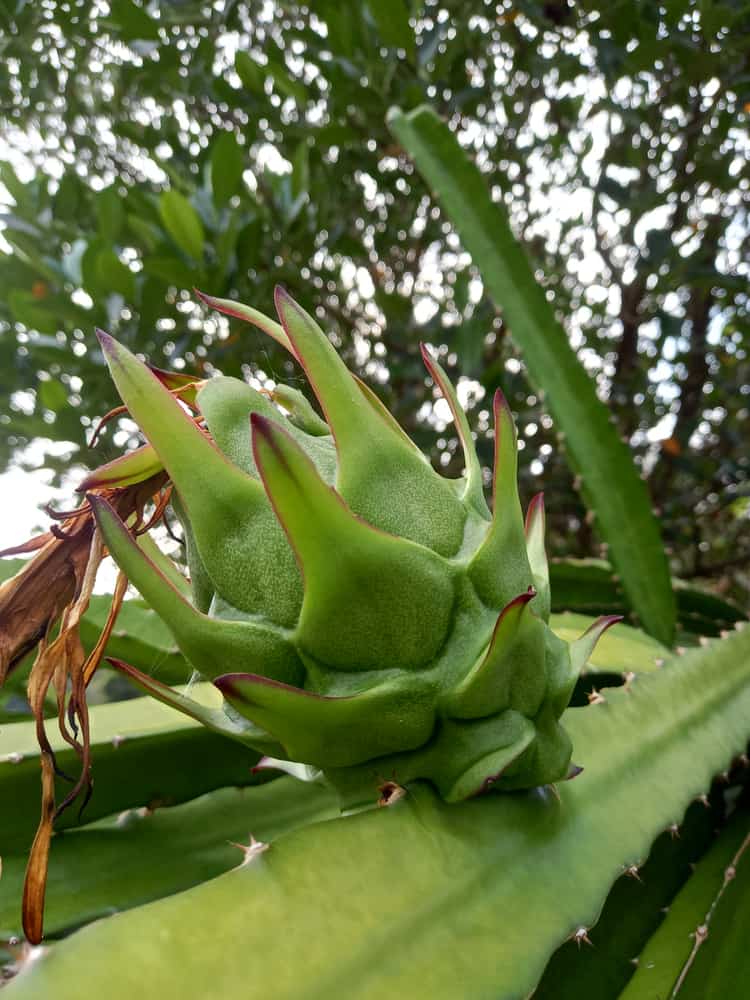
If you’re a plant enthusiast weary of seeing raccoons trample her precious seedlings, you might want to try planting some plants with a foul odor or taste to scare them away.
People often comment that the marigolds smell and taste terrible. Corn plants can also be shielded by the thorns of plants like squash, which can be sown in and around the corn.
It is up to you to determine which plants are secure for you and your pets. This approach accomplishes two goals: your garden will flourish, and you won’t have to deal with raccoon feces any longer!
6. Put Up a Motion-Detecting Sprinkler System To Prevent Flooding
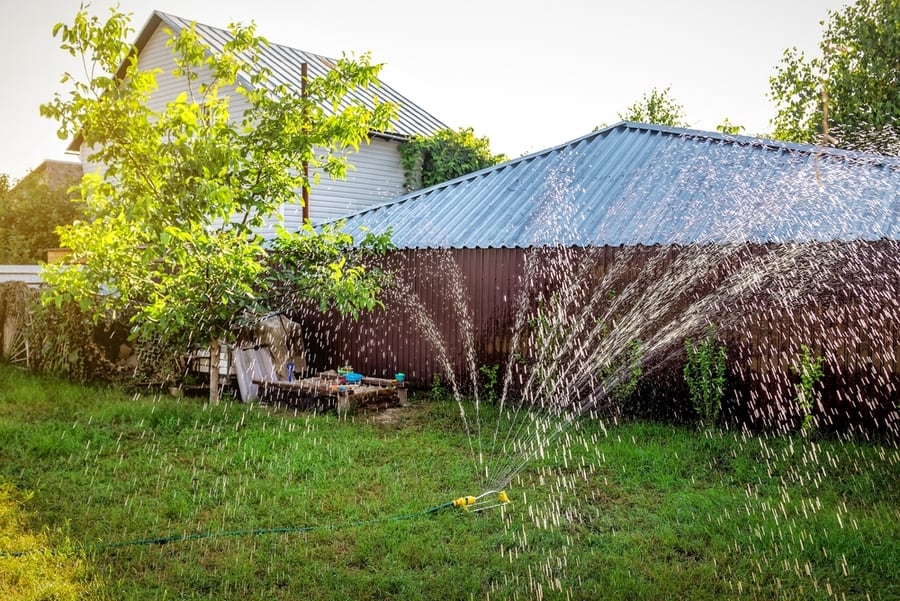
A motion-activated sprinkler system is intended to deter raccoons by spraying water in their direction.
Like other small mammals and rodents, Raccoons aren’t naturally terrified of water, but they will run away quickly if they encounter a sudden “water sprinkle attack.” Startle them before they have a chance to plan anything!
7. Put in a Pepper Spray Deterrent
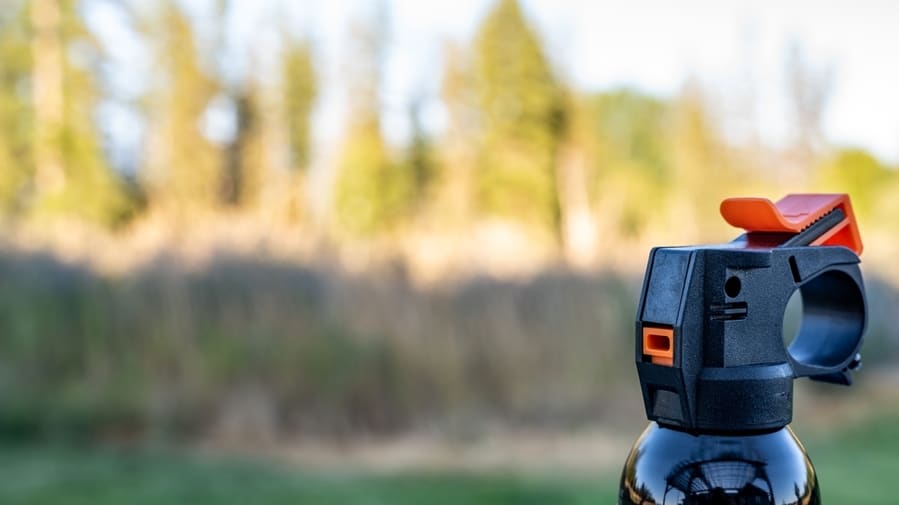
Hot peppers can be used to create a natural insect repellant. You can easily get them in stores.
Raccoons should be repelled with hot pepper-repellent spray because the animals dislike the spicy or scorching smell and flavor that permeates the air after exposure.
8. Use Ultra Sonic Sounds

Similar to smells, it is unclear if ultrasound is effective for warding off wild animals. While doing so, you may want to consider experimenting with ultrasonic devices in your garden.
This high-pitched noise is guaranteed to drive away any raccoons in the area.
9. Don’t Let Any Eatables Fall Into Your Yard

Perhaps you’ve been relaxing in your yard while munching on a hotdog or burger, and you haven’t spotted any crumbs or leftover meat lying around. It’s possible your rationale for doing so is to entice birds to dine on your leftovers.
But you probably never even considered the possibility that they could entice raccoons and other animals.
Maintaining a clean yard that is clear of food sources will discourage raccoons from making a home there. If they can’t detect the scent of food, there’s no point in them wandering.
Raccoons can easily gain access to bird feeders, so if you have any, it’s best to move them. The only drawback is that if you enjoy seeing birds, there’s a chance you won’t see as many of them anymore.
10. Pet Waste Disposal: Scatter the Poop
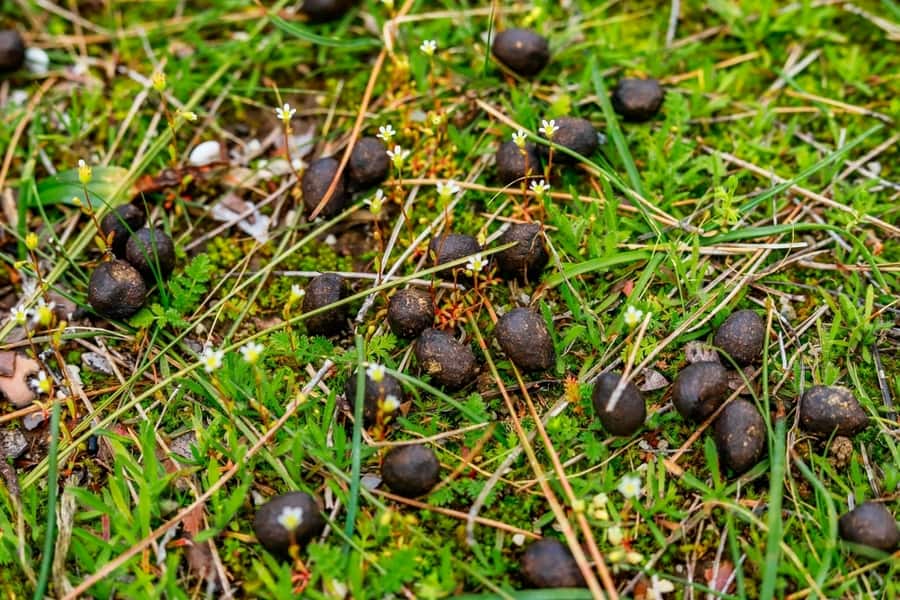
The best approach to facing danger is to confront it head-on with more danger. In all seriousness, raccoons aren’t the only pest you’ll be able to keep out of your yard if you distribute pet feces around the perimeter.
Many animals, including raccoons and other pests, will avoid an area that has recently been “marked” by your pet’s feces and urine.
11. Fix the Lights Using Motion Sensors
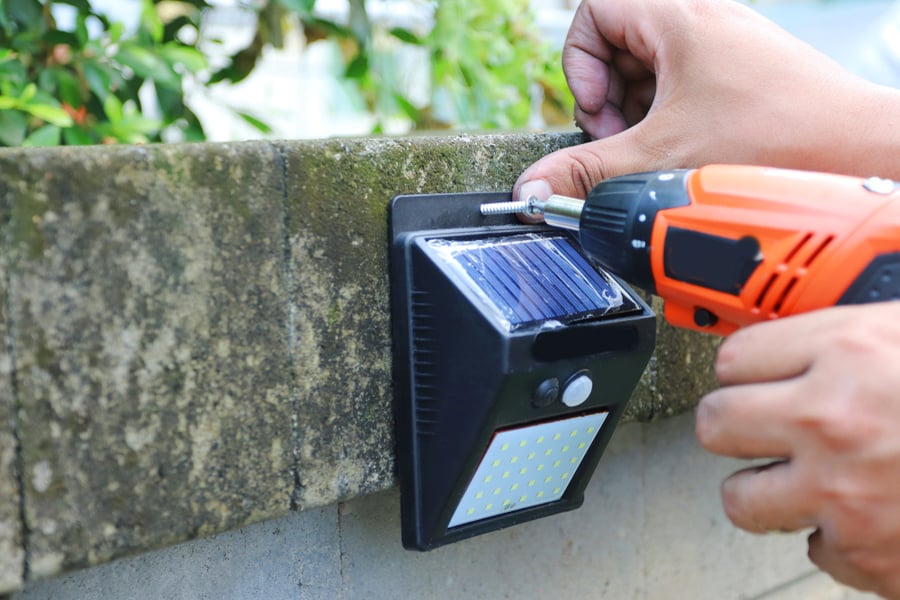
In their natural habitat, raccoons sleep during the day. Therefore, any illumination source will annoy you and discourage raccoons from defecating in your garden.
Motion sensor lights, like ultrasound and some fragrances, are not always effective. Because of their intelligence, raccoons may recognize that light poses no threat to them.
Odors That Raccoons Find Repulsive
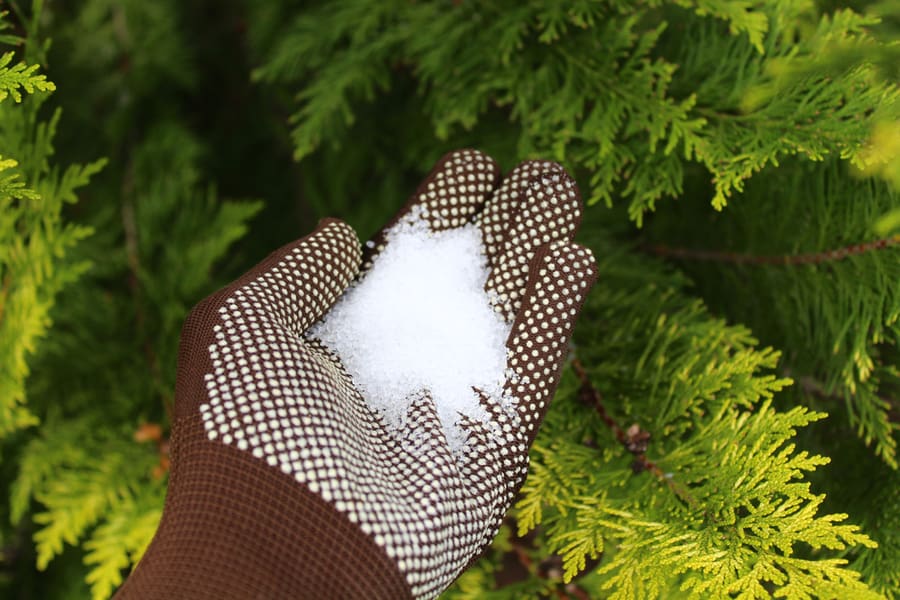
To keep raccoons out of your garden, try some of the following offensive odors. Remember that these may not be effective in the long run; ammonia, for example, might only be a stopgap measure.
Over time, raccoons will figure out strategies to avoid being scented.
- Ammonia
- Epsom salt
- Oil of peppermint
- Lemon juice with garlic
- Pepper and onion blend (Combine onion and pepper with water and bring to a boil. Spray it in the concerned areas)
Conclusion
The methods mentioned above can be a solution to keep your yard clean from the mess of raccoon poop. Making noise, such as with wind chimes, can effectively deter rodents and raccoons while the problem is being addressed.
It doesn’t take much to scare away a raccoon; some have even reported success with a radio playing noise.
This is because they would want to escape a predator, and a noisy environment could signal the presence of one.
Frequently Asked Questions
Do Raccoons Poop in the Same Place Regularly?
Raccoons are one of the tidiest animals because they are very particular about where they eliminate their waste. They have a bad habit of defecating in the same place daily but can be easily persuaded to move.
What Is the Worst-Case Scenario Solution To Avoid Raccoons Pooping in Your Yard?
It is probably time to call a professional and put up traps if you have tried everything else and are still encountering raccoons in your yard. In most cases, calling a pest control service and having them set up traps for you is the most efficient way to get rid of a raccoon infestation.
Since raccoons can become aggressive if they feel threatened, it is advised against attempting this on your own. Raccoons may spread dangerous diseases, such as rabies.
A trained expert would know what works best in the field, would be able to apply those methods, and would make sure that everyone is safe—even the raccoons.

